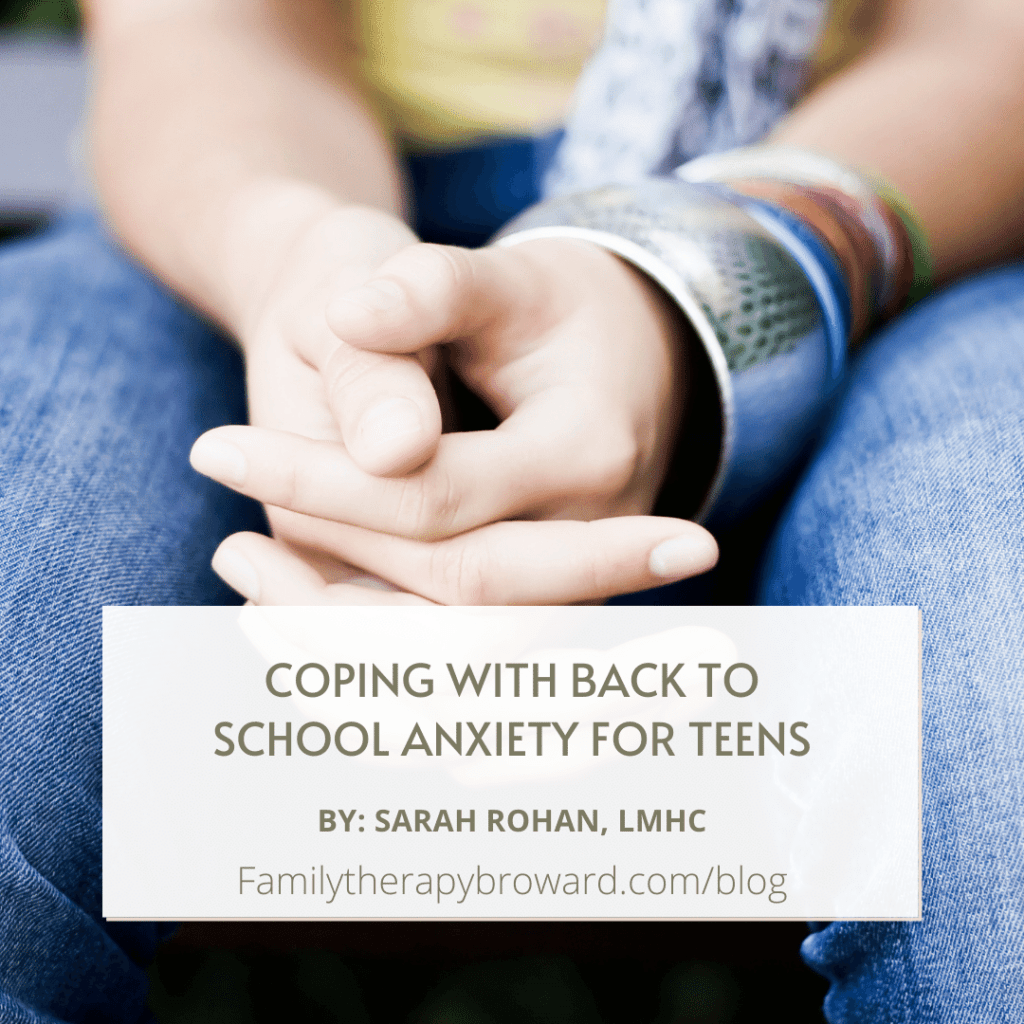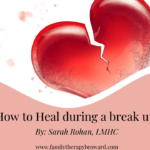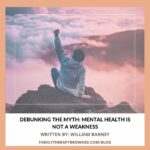
Coping with Back to School Anxiety for Teens
As the new school year approaches, there are many teenagers who are looking forward to going back to school. Even though many students had been attending in person school for months, most have not. There are students that may feel anxious about the return to school in person. All of them went through a lot during the pandemic, increased isolation, managing connections through facetime, texting and social media as well as navigating their thoughts and feelings regarding the pandemic. There has been significant increase in teens reporting anxiety and depression as well as academic difficulties during the pandemic. So, with this in mind, here are a few key tips for teens who may be feeling anxious about the upcoming school year.
- Coping with Uncertainty -It is normal to feel some anxiety about returning back to school full time. If you are like many students, you may have not been back to school in person for a significant amount of time. Often anxiety can surface due to feelings of uncertainty. It will probably not be completely back to normal when you return to school and that is ok. It can be frustrating to have unanswered questions such as will we be wearing a mask; do I want to wear a mask even if it not required and will continued social distancing limit how much I can talk to my friends. I am sure various other questions may come to mind. Try to find out as much as you can from your school and parents about what to expect when you return. Keep in mind there will be some unknowns. Take control of what you can and keep in mind that most people are doing their best to make school safe for everyone.
- Limit Avoidance – For some student’s, anxiety may have been something that they dealt with in the past and from some this may be the first time experiencing anxiety. Something to keep in mind, anxiety is a common mental health issue that many people deal with. Remind yourself, there are probably others experiencing similar feelings. It may be tempting to avoid a situation that makes you anxious such as attending the first day/week back to school. Avoidance will lead to an immediate reduction in stress but it can have long term negative consequences. The more we avoid situations, the greater the increase of anxiety and reinforcement of the false belief that the only way to deal with anxiety is to avoid facing our fears. Most importantly, we miss out on the opportunity to learn that typically we overestimate the risk of a new situation and underestimate our ability to cope with it. One way to help with decreasing avoidance is learning coping strategies for anxiety.
- Relaxation Techniques for Anxiety – There are several strategies to use when learning to cope with anxiety. Some of these include breathing techniques, progressive muscle relaxation, yoga, meditation, and mindfulness exercises. (Please note there are many free explanations and examples of these techniques on YouTube.) Be patient with yourself and keep in mind all of these take practice and consistency to be effective. Some of these techniques may appeal to you more than others, pick the ones that seem to fit you best.
- Coping Strategies for Anxious Thinking – There are lots of strategies for anxious thinking. Here is a simple strategy to use when dealing with anxious thoughts, Cognitive Distancing. Try to see your anxious thoughts as s guess and not a fact. Your anxious mind is trying to protect you from this made up worse case scenario in your mind. A few questions to ask yourself – How likely is it that this will happen? It is possible the something good could happen ? What is most likely to happen based on what you know about yourself and the situation? If you allow yourself to process these thoughts, often your anxious symptoms will decrease.
- Get Some Sleep – Sleep overall helps with many aspects of functioning and is important for our emotional health. Lack of sleep can affect mood, increase irritability , increase interpersonal conflict and has been linked to depression and anxiety disorders. Improvement in sleep shows decrease in symptoms of depression and anxiety. Some tips for better sleep include having a consistent bedtime routine, putting electronics away at least a half-hour before going to sleep and putting them on silent so you won’t be tempted to check notifications during the night, as well as avoiding caffeine and energy drinks in the afternoon and evening.
If you are struggling with anxiety and would like to get additional help, please reach out to our office to meet with one of our experienced therapist link here.
Written by Sarah Rohan
From Monica's bio...
I believe that our journey is filled with many unimaginable turns and twists. The key is to understand just how to deal with every single turn without losing our path. I know this first hand, not only from having relocated from a different country into the United States but also from having lived in different states from New York to New Jersey and finally Florida where I have settled with my family and children.













